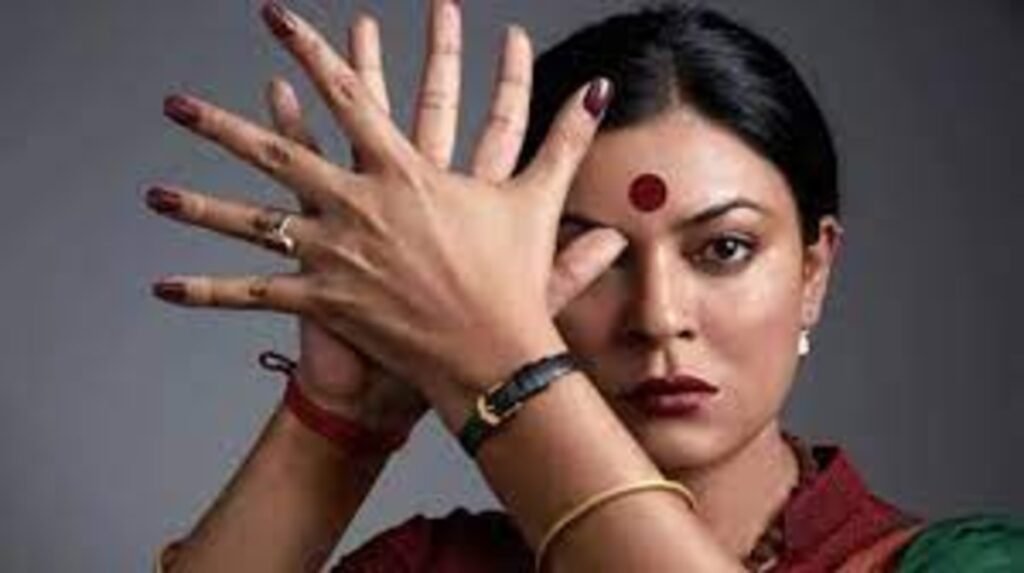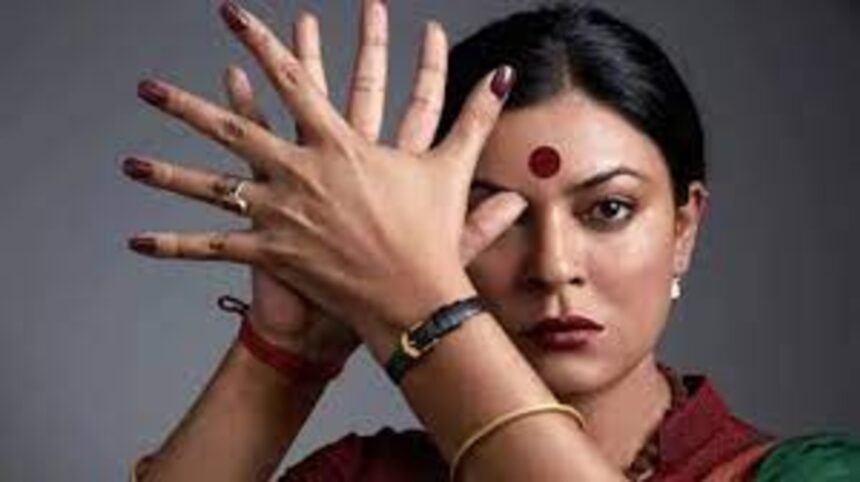Introduction
In the realm of biographical dramas, the power to inspire and enlighten rests on the filmmakers’ ability to encapsulate the essence of a subject’s life. JioCinema’s new series, “Taali,” takes on the life of transgender activist Shreegauri Sawant, portrayed by the talented Sushmita Sen. The show navigates the challenges, triumphs, and evolution of Gauri’s journey, all while attempting to shed light on the broader struggles of the LGBTQ+ community. However, despite its noble intentions, “Taali” struggles to transcend its formulaic template, leaving a sense of missed opportunity.

A series based on flashbacks
The series, created by Arjun Singh Baran and Kartk Nishandar and directed by Ravi Jadhav, unravels Gauri’s story through a series of flashbacks as she recounts her experiences in a Ted-talk style interview with a journalist. The central narrative revolves around Gauri’s transformation from Ganesh, a bullied effeminate schoolboy, to a beacon of hope for the transgender community. Yet, as the story unfolds, “Taali” is criticized for its heavy-handed presentation and its inability to delve into Gauri’s intricate inner world.
Sushmita Sen’s portrayal of Gauri Sawant is marked by grace and radiance, but also marred by a certain predictability. Her performance, though commendable, often feels constrained by the show’s limited exploration of Gauri’s emotional landscape. The narrative’s focus on presenting Gauri as a figure of inspiration overshadows the potential for nuanced character development. Sen’s stiff body language and some clichéd dialogues only amplify this limitation, rendering her portrayal more of a showy, one-note performance rather than a deep exploration of the character’s complexities.
Unfair comparison
One glaring drawback of “Taali” lies in its treatment of supporting characters and their struggles. The series makes an unfair comparison between the discrimination faced by a gay NGO worker, Navin, and Gauri’s own experiences. However, it fails to offer a proper context for Navin’s challenges, thereby diminishing the authenticity of the comparison. This discrepancy underscores the show’s lack of nuance in dealing with the complexities of queer existence.
While “Taali” attempts to capture pivotal moments in Gauri’s life, it often stumbles in its execution. The decision to emphasize key milestones over introspection and emotional evolution leaves the viewer yearning for a more profound connection with the character. Scenes that could have been transformative moments for Gauri’s character development feel staged, robbing the show of the chance to explore her internal journey with depth.
Moreover, the series’s obsession with external achievements and its focus on presenting a sanitized version of Gauri’s story hampers its ability to truly understand and portray her. The show’s treatment of her as a historical figure of inspiration overshadows her identity as a living, breathing individual with a rich, subjective inner life. This lack of introspection compromises the show’s overall impact, leaving viewers wanting more substance and emotional engagement.
In conclusion,
“Taali” endeavours to bring to light the inspiring journey of Shreegauri Sawant and her significant role in the transgender rights movement. However, its formulaic approach, emphasis on surface-level achievements, and reluctance to delve into the intricacies of her emotional world hinder its potential impact. Sushmita Sen’s valiant efforts to infuse life into Gauri are restrained by the show’s limitations. “Taali” serves as a reminder that biographical dramas must transcend mere reenactment to explore the depths of their subjects’ humanity. Only by embracing a more nuanced, introspective approach can such stories truly resonate and inspire.







